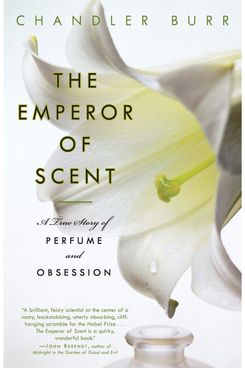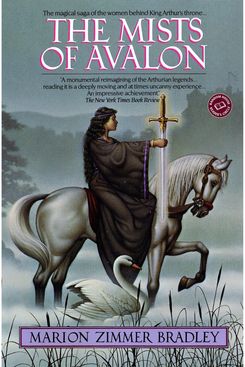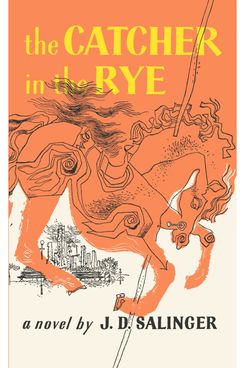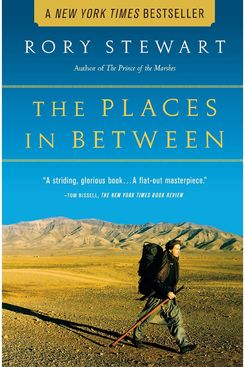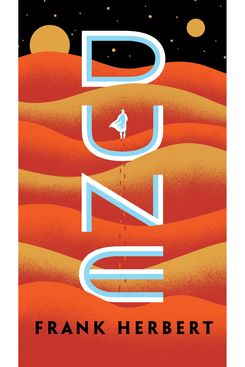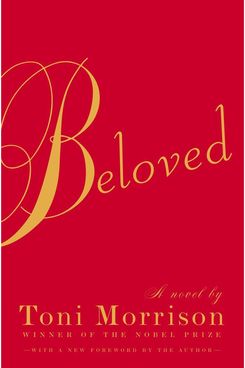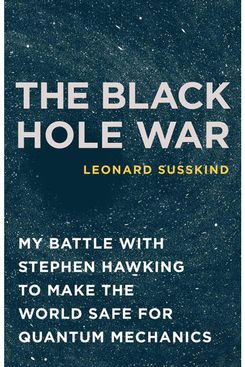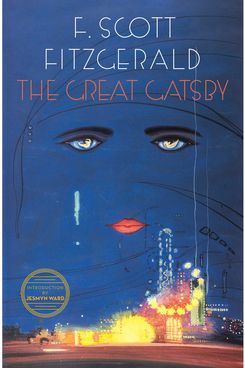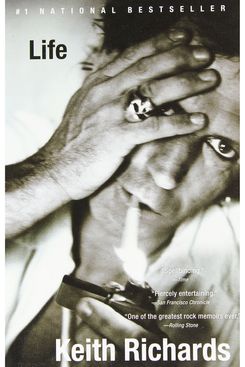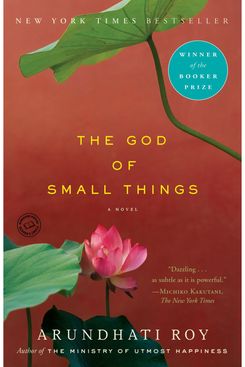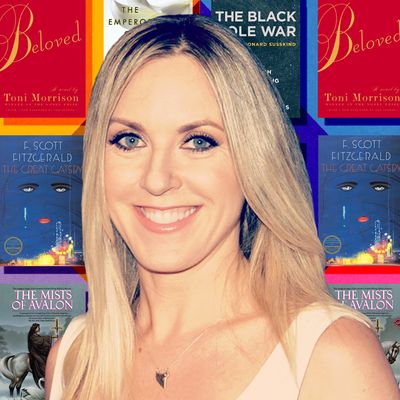
Bookseller One Grand Books has asked celebrities to name the ten titles they’d take to a desert island, and they’ve shared the results with Vulture. Below is musician Liz Phair’s list.
I loved the drama of this exploration into the mechanism of smell, itself wrapped inside the romantic tale of a curmudgeonly scientist obsessed with his own exquisitely refined appreciation of perfume. This book gives a behind-the-scenes look into the world of manufactured scent: the history, the most prized essences, the sterile labs, the villainy, the exotic extracts, the big retail business — and the pure joy of olfactory response in customers who can recall major events in their life by inhaling a whiff of the cologne they wore at the time.
My mother gave me this book to read in high school when I was sick with a malingering cold and missing out on social events. But it was absorbing, unlike any other historical fantasy I’d read. Viewing Arthurian legend through the eyes of the female characters upended my sense of history altogether, showing me that even real-world events can be viewed through many lenses. I loved identifying with the enchantress turned crusader. So dramatic! The heart strings it plucked — sexual frisson, jealousy, courage, betrayal, magic power — perfectly aligned with my turbulent emotional state as a restless young woman.
Probably my favorite book of all time because of the truthful, raw language — it sounds so modern. To think that it was written almost 75 years ago at the end of World War II seems both astounding and inevitable. Plain, honest communication and wild, spontaneous beauty were all that was left after they’d cleared away the rubble. Enter Holden Caulfield, an off-kilter personality balancing an unlikely mix of cruelty, kindness, truth, acceptance, and rebellion in one rather average noggin. Holden represents a new type of heartthrob, presaging the bored, hypervigilant James Dean types of later cinema — the romantic nihilists, capable of loving fiercely in the moment but standing equally aloof from and critiquing their own emotions. The dawning of the age of emo.
An American man walks across Afghanistan by himself, equipped with nothing but a rucksack, a walking stick, and an enormous Kurdish dog. Who hasn’t dreamed of setting off into the unknown? Of risking certain danger to explore the other side of the Earth, both geographically and metaphorically? Few people have the guts to trek unarmed through hostile, war-torn foreign territory, relying upon the aid of often isolated, tribal communities, but the rewards of seeing a landscape from that personal and vulnerable perspective are manifold. It heartens the soul to believe that we can depend upon one another as human beings, that we can subsist upon such accessible and un-rarefied values as family, hospitality, and respect. Be prepared to cry, though.
I read Dune because my son recommended it. He thought I would enjoy the dynastic element. I was looking for help with my novel, searching for a story that showed how to build a simple narrative within larger, sociopolitical themes. I didn’t find the simple narrative, but Dune left an indelible impression on me as a staggering work of science fiction. Herbert’s detailed and engrossing descriptions of life on planet Arrakis were so convincing, they left an actual stink on my palette. The spice mining water reclamation suits, for instance, are visions I could live without. As far as world-building goes, Dune is on my top-ten list of best examples. Plus, every time I think about it, I feel pride and warmth for my son.
Toni Morrison’s miraculous prose is a showstopper in this novel. It is the first time I remember being awestruck by an author’s talent. The blunt, colloquial dialogue punctuating a more nimble and filigreed narration style is a rhythm I have borrowed from heavily in my own work. Her ability to embrace the supernatural while never straying far from the familiar imbues the story with a fairy-tale quality in the old-school sense, where horror shadows everyday life and wonder awaits you just around the corner. I grew up in Cincinnati, and my grandparents’ home in Indian Hill had a false wall for harboring men and women fleeing slavery in Kentucky. I felt deeply connected to this book, as if I were reading it as a member of Sethe and Denver’s troubled household in their tightly woven African-American community.
I love reading about astrophysics and quantum mechanics. I feel like I’m reading very advanced poetry. Or tackling an incredibly difficult crossword puzzle. I certainly do not understand all of the concepts but my mind loves stretching in novel directions and exploring improbable shapes that might, in fact, be real. My introduction to the genre was Hawking’s A Brief History of Time, so it is particularly delicious and poignant to gain an insider’s view into the squabbles and passions of physicists trying to establish the outer (or inner) bounds of our human knowledge. That such a noble pursuit is fraught with the attenuating demands of ego is kind of funny and relatable. For what it’s worth, I believe Susskind’s distinction that a literal singularity is an outmoded and limiting construct. However, Hawking will always be my OG.
Is there a better, cleaner, more streamlined, and quintessentially American tale? The scope and scale of Gatsby’s world draws me back again and again. I plant my flag in the hard soil of enduring and impossible love. The American Dream is a form of impossible love, is it not? You grasp at it, you claw your way toward it, you compromise yourself to ascend the steps of the temple, but the treasure inside is made of nothing — a silvery thread of faith, thought, and hope. Seize it and it will disintegrate in your palm. Gatsby is the most vivid and surprising romantic figurehead of our modern age: proof that the wanting IS the having. Fin.
The New York Times asked me to review Keith Richards’s rock and roll memoir, Life. Due to a printing delay, I was reading and writing my impression of his chronicle while I was out on tour myself. It was a delight to immerse myself in such a jaw-dropping account of the peripatetic lifestyle I was experiencing, albeit at a much shallower altitude. The Rolling Stones are iconic by any measure. Getting an all-access pass backstage through Richards’s eyes to the world beyond the bright lights and throbbing amplifiers is as thrilling as you might imagine. You will laugh out in parts, nod in recognition at the famous cultural touchstones, and feel proud to be a music fan. Rock and roll has a very specific ethos, and Life hits upon all of the sacred precepts. Plug it in and turn it up to 11.
I’m a big fan of writers who emphasize the importance of personal interaction. I’d rather guess at a plot by accumulating minute observation of the behaviors of characters than be driven down a straight road with predictable lefts and rights. In her debut novel, Roy writes like a human microscope, moving her focus in and out of different time periods and opening up the petals of language to reveal ever more tightly coiled insights. Fraternal twins Rahel and Estha Kochamma share a devastating secret that’s tainted their lives, mirroring the corruption at the heart of India’s ruling system that has exploited and polluted the country for decades. Untangling effects from causes is never more exquisitely wrought than in this masterful and sensitive opus. Roy is one of those rare authors who has the power to trick you into believing her stories are your own.


